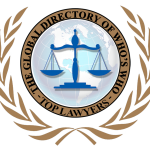11 April 2017
Authored By: Craig Brand Principal At Ganja Lawyers Colorado

“Legal cannabis sales in the U.S. last year reached $6.7 billion, a growth of 30 percent, according to an ArcView Group market research report outlined by the International Business Times.
The growth is faster than the dot-com boom of 2000. Tom Adams, ArcView’s editor-in-chief, said that the figures are almost unprecedented in U.S. history. The firm expects the market to exceed $20 billion by 2021 with a 25 percent gross domestic growth rate, outpacing the 22 percent rate seen during the tech boom”.
However, those jumping in are doing so without first seeking competent cannabis counsel, without understanding the cannabis laws, without understanding the FDA laws, without understanding their State’s Health and Food Safety Laws and blindly following the industry’s norm as if some actually knew what they were doing or talking about?
You might not know this, but you may have jumped into a tar pit disguised as a beautiful blue hole. With any good business must first come a great lawyer.
Did you know that you are responsible for verifying that the CBD or the hemp oil product being purchased comes from a licensed source. Yes, the supplier must be properly licensed through their State’s Department of Agriculture or cannabis department. It doesn’t end there, you must then ascertain whether or not the State that this supplier is registered allows for the commercial sale and transport of the product being sold.
Don’t be fooled as many states do not permit this and you shouldn’t take a supplier’s word as gospel; not when the penalties can be criminal. It is not enough that you or someone you know simply have received hemp products, as ignorance to the laws is not an exception. You are also responsible for knowing and obtaining a certified lab report as to the product’s content and THC percentage levels. You must also know if the state you are in or selling to allows for any percentage level of THC within the hemp product you are selling or receiving. There are differences between what the federal law permits and what various state narcotics laws allow. By various, I mean many. For instance, the State of Texas has a zero tolerance for THC. No level is permissible; not even 0.001%. You don’t want to be confused on issues concerning controlled substances.
If you are purchasing CBD or hemp oil in food products, did you know that you should verify that the manufacturer is properly registered with the FDA or is exempt. 21 U.S.C. §350d. Registration Of Food Facilities (a) Registration. 21 U.S.C. § 321(f), The term “food” means
(1) articles used for food or drink for man or other animals,
(2) chewing gum,
and
(3) articles used for components of any such article. (g)
(1) The term “drug” means
(A) articles recognized in the official United States Pharmacopoeia, official Homoeopathic Pharmacopoeia of the United States, or official National Formulary, or any supplement to any of them;
and (B) articles intended for use in the diagnosis, cure, mitigation, treatment, or prevention of disease in man or other animals;
and (C) articles (other than food) intended to affect the structure or any function of the body of man or other animals;
and (D) articles intended for use as a component of any article specified in clause (A), (B), or (C).
In the current market, CBD and certain hemp oils may qualify within 21 U.S.C. § 321(f) & (g) and unless you are in a properly situated chain of custody you might be selling “adulterated goods”. §342. Adulterated food, applies to much more than tampered with, poisonous or manipulated foods. Instances such as re-packing, open containers, storage, food additives, food colors, and even non-nutritional additives apply. If the chain of custody from supply to packaging is not properly lined up with licenses, permits, certificates, the product you just bought to re-sell may be deemed lawfully Adulterated and you a cog in the impermissible wheel.
Then there are issues with labeling of product. 21 U.S.C. § 321(k), discusses product labeling. What is important is that this section discusses the laws for not only what must go on the label but what cannot be omitted, mis-represented, mis-leading or misbranded. Are you selling a product, to be ingested by a person or animal, and failing to list all of the warnings, precautions or to call 911 if adverse effects appear? Are you warning people not to ingest if taking with grapefruit or have certain medical conditions? Are you informing about dosages and listing product ingredients? Are you failing to inform people that this product contains, even trace amounts, of THC or is derived from a product containing THC? The list goes on.
The FDA has further determined that products containing CBD cannot be sold or mis-represented as a dietary supplement and are excluded from the dietary supplement definition in the Federal Food, Drug, and Cosmetic Act. Federal Food, Drug, and Cosmetic Act, §201(ff)(3)(B)(ii). [21 U.S.C. § 321(FF) above.]
For more information, see FDA, “FDA and Marijuana: Questions and Answers,” September 30, 2015, http://www.fda.gov/NewsEvents/PublicHealthFocus/ucm421168.htm.
The FDA has further ruled that claims of health benefits, medicine, medical effects cannot be labeled or advertised and in fact a dis-claimer must be applied on all packaging, marketing and advertisements.
Putting yourself out in the industry as a spoke in the wheel also means that you should look into the issues of insurance, product liability, legal compliance, banking, and merchant services. As we have just witnessed in Oregon and California there might even be issues with third party vendors selling product that contained improper pesticides; the liability can be civilly shared with all cogs in the wheel.
Please allow Team Ganja Law or Ganja Law Consultants to best serve and protect you and your interests. www.Ganjalaw.com.
In conclusion, we at Ganja Law and Ganja Law Consulting are enlightened that so many “Ganjapreneurs” are eager and entering the industry. However, with this opportunity comes real and legal responsibilities. The ultimate consumer is ingesting the product you are selling and believing the product representations told. Failure to retain proper and knowledgeable legal counsel might cost you more than what you bargained for. Stay safe by compliancy and make sure you have first quality representation.
GANJALAW.COM; @GANJALAW_COM; Tel. 1-855-4-THC-LAW.
Craig A. Brand, Esq.





